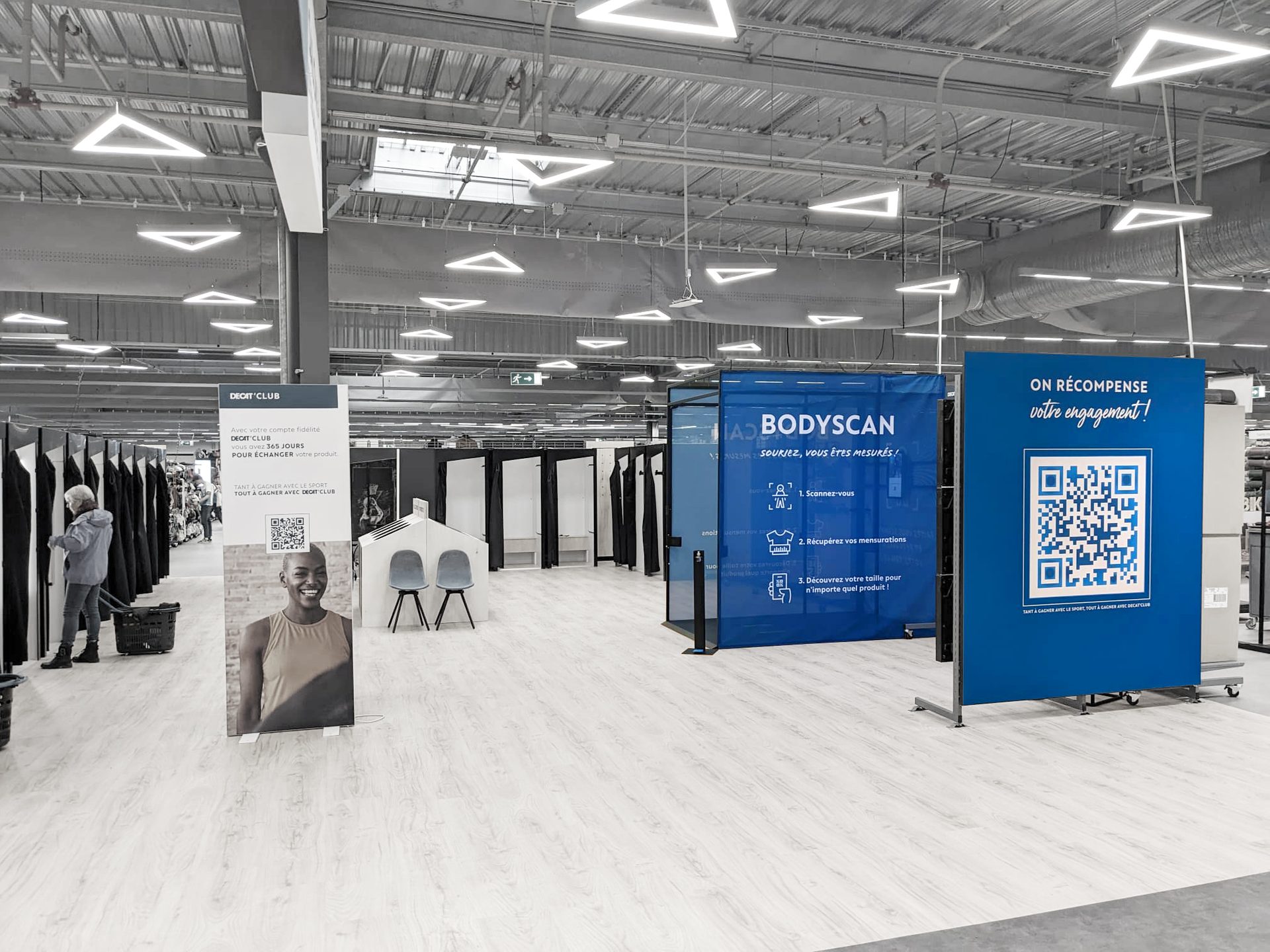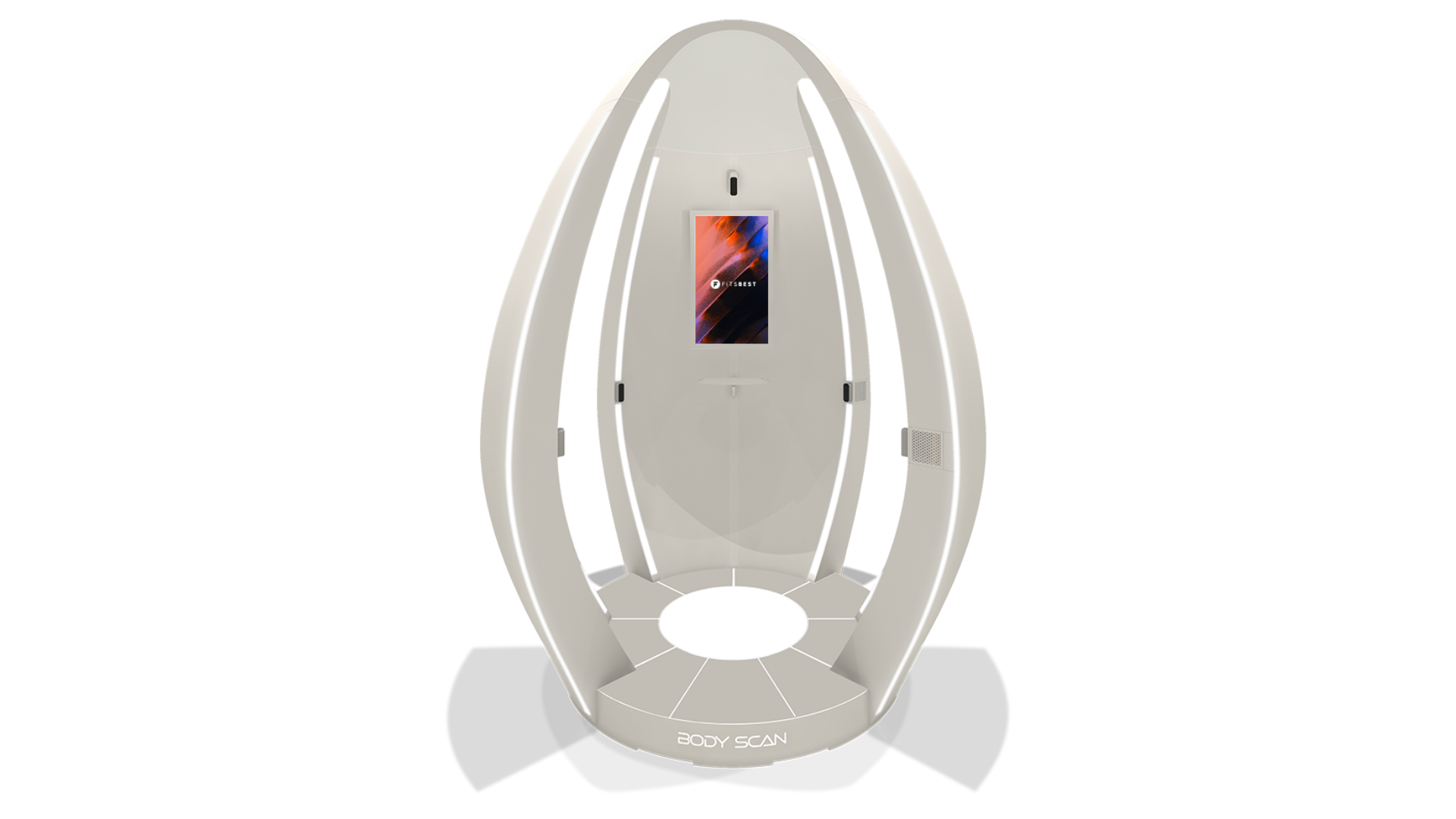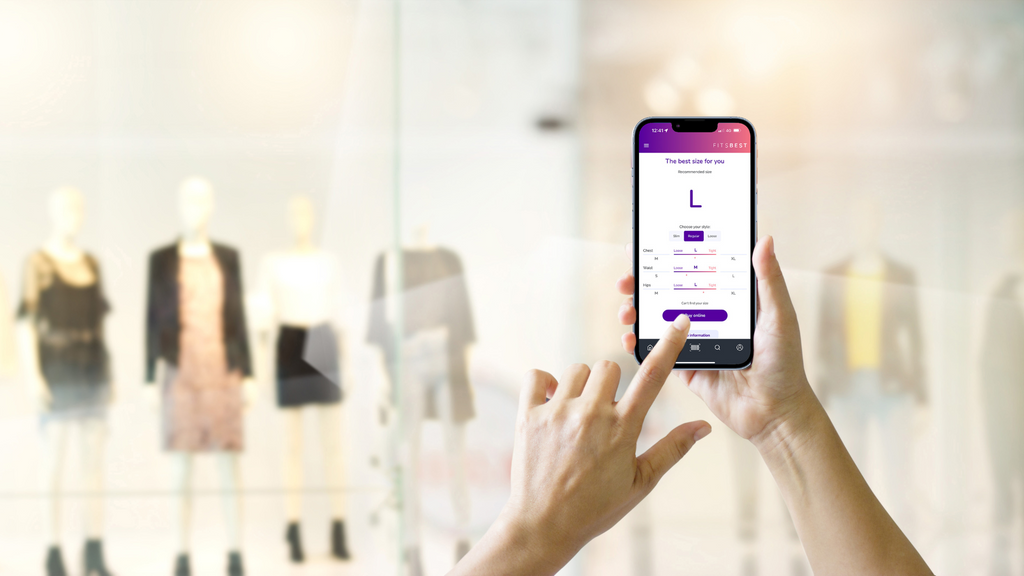Imagine clothes shopping without ever having to step foot in a fitting room? The Brussels-based startup Treedy's is making this a reality through a full-body scanner that extrapolates your size without you even having to take your clothes off.
"I started the company in 2015 to develop reliable and transportable 3D scanning devices. At the time, we were not looking into the fashion industry at all," Treedy's CEO and founder David Francotte told The Brussels Times.
"But then we were contacted by a major player in fashion who inspired us to shift towards developing services that address the pain points of the fashion industry through the analysis of 3D data," he continued.
A better shopping experience
Treedy is promoting its own body scanning portal – called Bodyscan. Before entering, shoppers need to select their gender and provide their email address. After being scanned, the machine then processes their data in less than a minute.
At first Francotte's team began working on a standard design for the Bodyscan, but then decided to make it personalised according to the retail brand. "I'm sure Chanel, for example, would prefer to have a fancy standing device full of light, whereas maybe Zara would go for something simpler," Francotte explained. "Our scanner's design can be tailored to seamlessly fit into any store environment."

Treedy's at Decathlon. Credit: Treedy's
The Bodyscan can extrapolate a fully clothed person's clothing size through Treedy's patented AI algorithm called Nakednet, which was trained to estimate biometrics by studying thousands of different body shapes, in partnership with VUB’s Department of Electronics and Informatics.
"We can scan body metrics underneath clothing, and that's the big difference between the tech we have and anything else on the market," Francotte explained. "Our unique approach to body scanning eliminates modesty concerns, making the process as straightforward as possible, while still preserving the customer's intimacy."
Their smartphone app Fitsbest, which provides a mobile-scanning function that shoppers can use to scan themselves either in-store or at home, is also set for official release in November. Fitsbest will enable shoppers to scan digital tags on clothing and receive advice based on their body scan data.
At its core, Treedy's is also challenging the industry norm of "one-size-fits-all" by wanting to provide customers with tailored advice that considers both the garment's characteristics and the shopper's preferred fit — slim, regular, or loose.
Retail benefits and privacy concerns
On the retail side, brands can extract data from their Bodyscan portal (namely, body measurements and customer emails) to help direct their strategy and align it with customer body types and purchasing habits.
Treedy's CEO believes that the improved knowledge of their customers will push retailers to produce goods in a more targeted manner, which ultimately means less overstocking and waste, and will also limit the number of returned items.
The idea of a company storing the digital image of shoppers' naked bodies and biometric data can raise serious privacy concerns.
In regards to this, Francotte explained that scans are just an estimation of the biometrics, and they never include facial features. Additionally, Treedy's says that it will not sell individual data to third parties, only aggregated market segment data – for example, the average size of men aged 25-30 years old in Brussels. Additionally, users can delete all their stored data at any point in time.
It sounds futuristic, but Treedy's has already partnered with Decathlon (a stakeholder owning 10% of shares) to bring the Bodyscan into a couple of their stores across Europe. Treedy's is currently in conversation with more potential retail partners, Francotte said.
Preparing for the metaverse?
At its inception, the Bodyscan was a sleek, white and oval-shaped design, before it was decided to make it customisable for retailers. "I thought it was cool. It's like the shape of an egg, it symbolises rebirth. Your digital birth."

The Bodyscan's original design. Credit: Treedy's
Treedy's is preparing for the future in more ways than one. Its body scanning and biometric extracting technology could help individuals enter a future "metaverse" by rapidly converting body scans into digital avatars – or "digital twins" as Treedy's website calls them.
"The only thing that would be left to do for a metaverse company is to customise the haircut and facial features, to get a "Simsified" version of yourself," Francotte said. With the option, of course, to add accessories and modifications. "I would put way more hair on my head, anyway," the CEO laughed.

